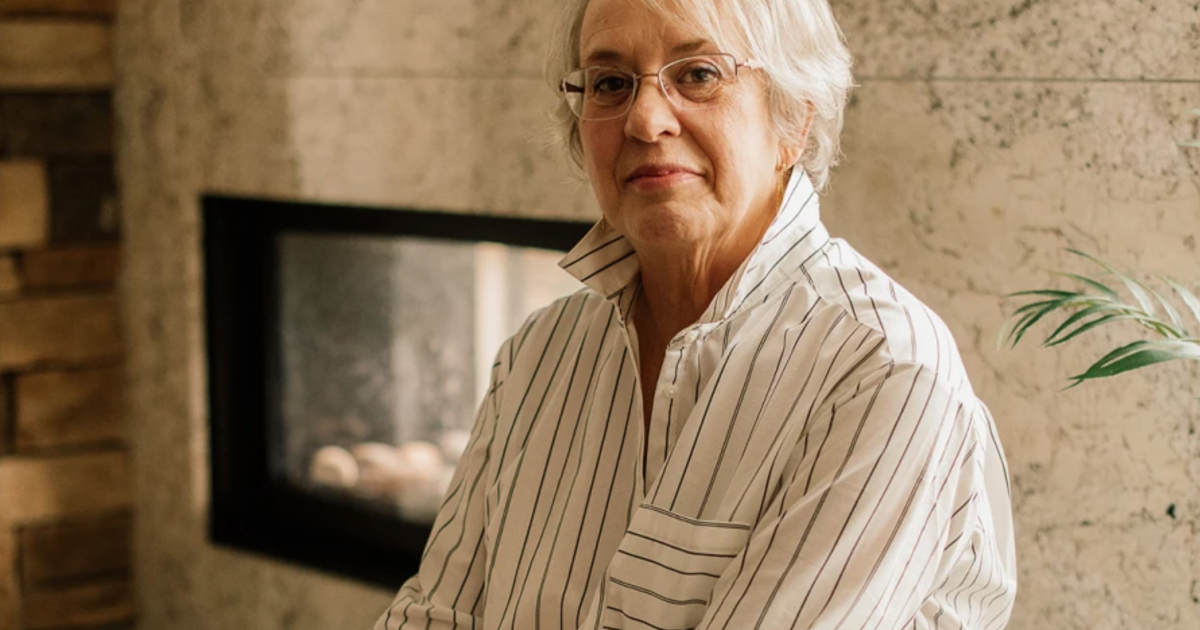An Unexpected Discovery
- Reissa Spier, 67, first became interested in genetic testing when she was diagnosed with breast cancer. She was worried that she might carry a gene mutation that would put her children at risk.
- Spier was initially denied genetic testing because she was adopted and could not prove that a first-degree relative had breast cancer.
- When she was finally able to undergo gene testing, she discovered multiple biological siblings that she had been unaware of.
The Surrey, Vancouver native was diagnosed with breast cancer at age 51. (The specifics of Spier’s breast cancer journey were not revealed.) The diagnosis prompted Spier to research genetic testingshe was concerned about the possibility of passing gene mutations on to her daughter.
Read MoreDr. Rebecca Arend of UAB Medicine breaks down how the BRCA gene mutations work on a cellular level.
One of Pier's biological siblings remembered that his mother was pregnant almost every year from 1949 to 1957. He also remembered an older sibling telling him that their mother's children were sold to other families for $10,000 a baby. "I was young," he said, "And I didn't understand why she would keep on having babies."
Spier's investigation into her family tree led her to connect with many more siblings and half-siblings. She still has a lot of questions, but she feels lucky that she was able to learn more about her background and meet her blood relatives. "It didn't really hurt me by meeting them. If anything, it enhanced me," she said.
Genetic Testing: What is the BRCA Mutation?
Genetic testing is sometimes focused on two possible mutations in the BRCA gene: BRCA1 and BRCA2. These genetic mutations have been linked to an increased risk of multiple types of cancer, but they are best known for increasing the risk of breast and ovarian cancer in women. It is estimated that about 72% of women who inherit a BRCA1 mutation and about 69% of women who inherit a BRCA2 mutation will develop breast cancer by the age of 80. Roughly 44% of women who inherit a harmful BRCA1 mutation and about 17% of women who inherit a harmful BRCA2 mutation will develop ovarian cancer by the age of 80.
If you have been diagnosed with a BRCA mutation, there are still steps you can take to lower your risk of developing a cancer.
It is important to note that the gene mutations aren't exclusive to women. They can increase the risk of prostate cancer and breast cancer in men, and breast and pancreatic cancer and stomach cancer in both men and women.
Why Does a BRCA Mutation Increase Cancer Risk?
In a previous interview, Dr. Rebecca Arend, associate scientist at the University of Alabama, Birmingham, explained how these mutations affect risk: "What a BRCA mutation is, is a defect in your ability to repair a double-strand break (in your DNA)." This means that cells have a tougher time repairing their DNA. When cells repair their DNA the wrong way, is when cancer, such as breast and pancreatic cancer, is more likely to develop.
Who Can Have a BRCA Mutation?
The BRCA mutations (which are passed on from a father or a mother), can cause a variety of cancers. If one of your first degree relatives carries a BRCA gene mutation, there is a 50-50 chance you're carrying it, too. And because BRCA mutations aren't tied to the X or Y sex chromosome, that blood relative does not need to be a woman. You're just as likely to inherit the risks of cancers associated with BRCA from your father as you are from your mother.
Learn more about SurvivorNet's rigorous medical review process.


